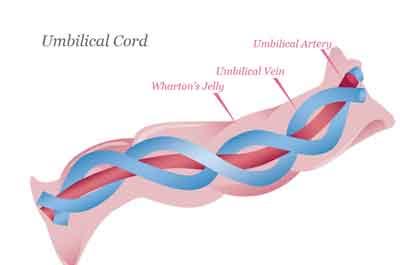- Home
- Editorial
- News
- Practice Guidelines
- Anesthesiology Guidelines
- Cancer Guidelines
- Cardiac Sciences Guidelines
- Critical Care Guidelines
- Dentistry Guidelines
- Dermatology Guidelines
- Diabetes and Endo Guidelines
- Diagnostics Guidelines
- ENT Guidelines
- Featured Practice Guidelines
- Gastroenterology Guidelines
- Geriatrics Guidelines
- Medicine Guidelines
- Nephrology Guidelines
- Neurosciences Guidelines
- Obs and Gynae Guidelines
- Ophthalmology Guidelines
- Orthopaedics Guidelines
- Paediatrics Guidelines
- Psychiatry Guidelines
- Pulmonology Guidelines
- Radiology Guidelines
- Surgery Guidelines
- Urology Guidelines
Umbilical cells linked to increase risk of obesity: Study

New York : A new study has found that children who are born to obese mothers are likely to be at an increased risk of obesity as a result of their umbilical cells showing impaired expression of genes regulating cell energy and metabolism.
The findings was published in the International Journal of Obesity and suggested that the increased risks of obesity may be driven by boosted levels of certain lipids (fats and other substances that are not soluble in water) in the maternal blood that flows through the umbilical cord.
Researchers have gathered umbilical cords after birth from women without diabetes and recruited 24 overweight or obese women (with a body mass index over 25 before pregnancy), and 13 women who were not overweight for the study.
The scientists collected umbilical cells from the vein that carries oxygen and other nutrients from the placenta to the embryo.
The team discovered that in these cells, increased obesity in the mothers correlated with lower expression of genes regulating mitochondria (which act as the cell's powerhouses) and of other genes regulating the production and metabolism of lipids.
"This suggests that already at birth there are detectable metabolic perturbations resulting from maternal obesity. Changes in these cells were similar to some known to occur in obesity, insulin resistance and type 2 diabetes," said Elvira Isganaitis, Researcher at the Harvard Medical School.
When the researchers followed up by analysing fetal blood from the umbilical cord vein, it was found that the infants of obese mothers had significantly higher levels of many lipids that are known to be metabolically deleterious, like saturated fatty acids.
Fat tissues in the obese mothers may shed fatty acids that make their way into the fetal blood and create a kind of fuel overload for the embryo.

Disclaimer: This site is primarily intended for healthcare professionals. Any content/information on this website does not replace the advice of medical and/or health professionals and should not be construed as medical/diagnostic advice/endorsement or prescription. Use of this site is subject to our terms of use, privacy policy, advertisement policy. © 2020 Minerva Medical Treatment Pvt Ltd